Where does the food Parisians eat come from? And will it keep coming during the lockdown imposed during the coronavirus crisis?
Most of it comes from “the belly of Paris,” the gigantic Rungis wholesale market, the largest in the world. And yes, it will – it must! – keep coming during the Covid-19 crisis.
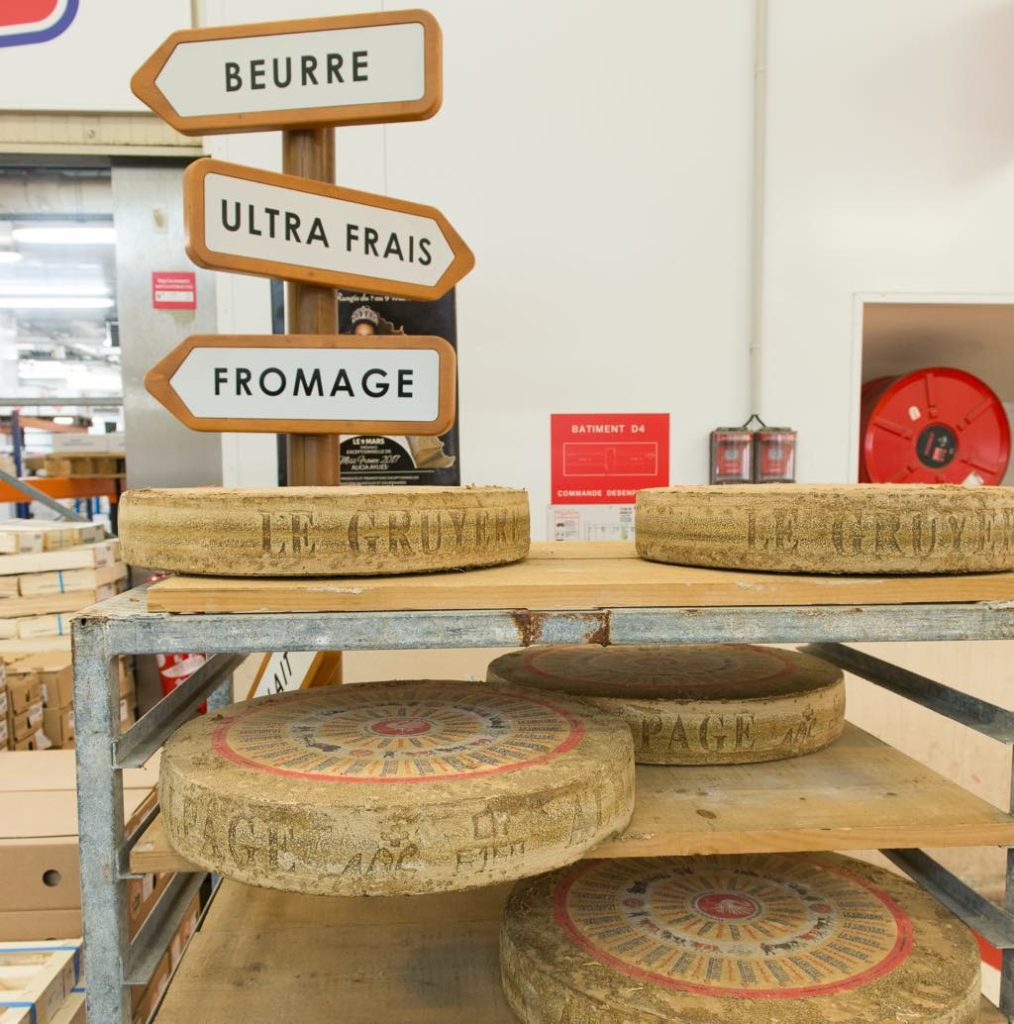
Rungis is a city in itself, but no one lives there. Every person and every product is just passing through. It lives by night, from about 4am to 8am, when it teems with activity. The 20 buildings in the 234-hectare (578-acre) market are cavernous hangars that fill up with everything from sides of beef to palettes of pineapples and huge wheels of cheese and then empty out daily.

It is not an open city, however. When photographer Jason Gardner and I arrived in the dark in a tiny electric car for a pre-Covid-19 visit in the wee hours of the morning, I feared we would be squashed like bugs by the enormous tractor-trailers that surrounded us as we were funneled through the entrance gate, a sort of toll booth where everyone entering must show a buyer’s card or pay an entrance fee.
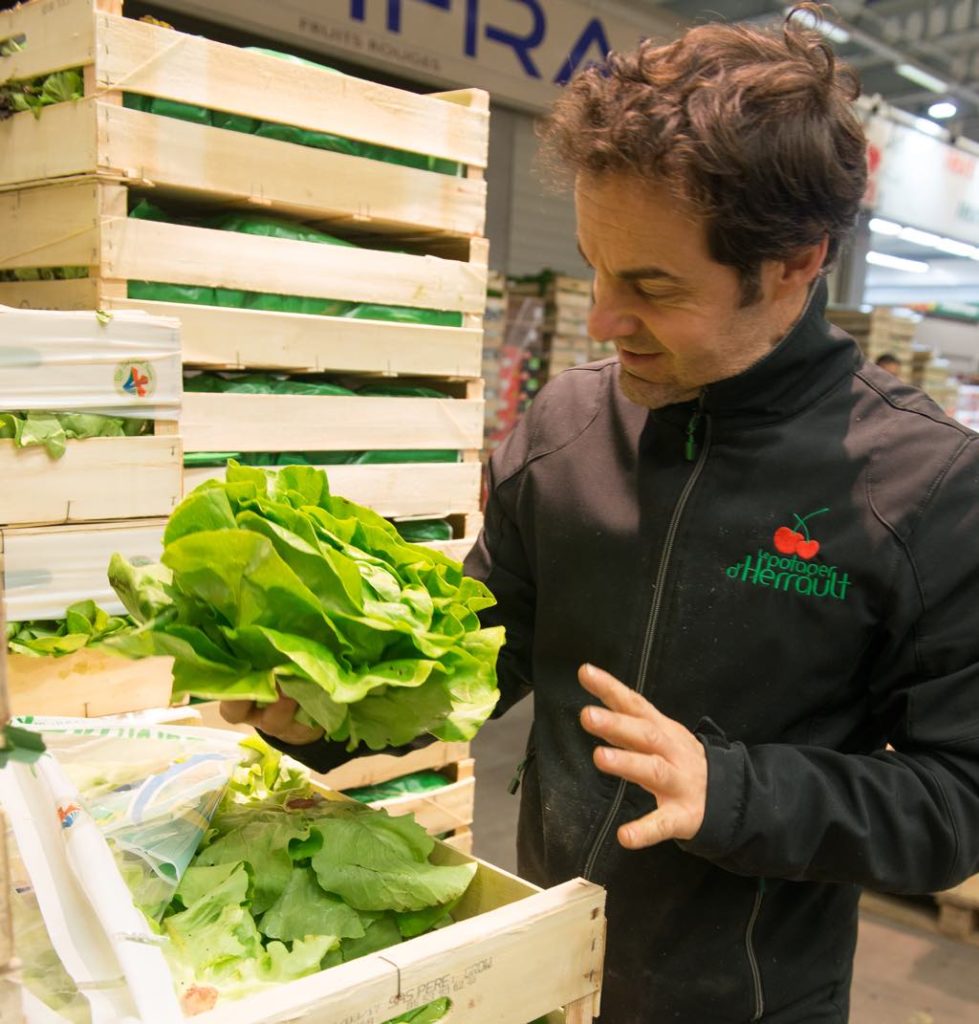
We were there to follow Jocelyn Herault, a vendor of organic produce at various outdoor markets in Paris, as he made his rounds at 5am, visiting his favorite wholesalers and tasting various seasonal fruits and vegetables, selecting the best and rejecting others because the prices were too high, they didn’t taste good enough or they didn’t look appealing. “People buy with their eyes,” he said.
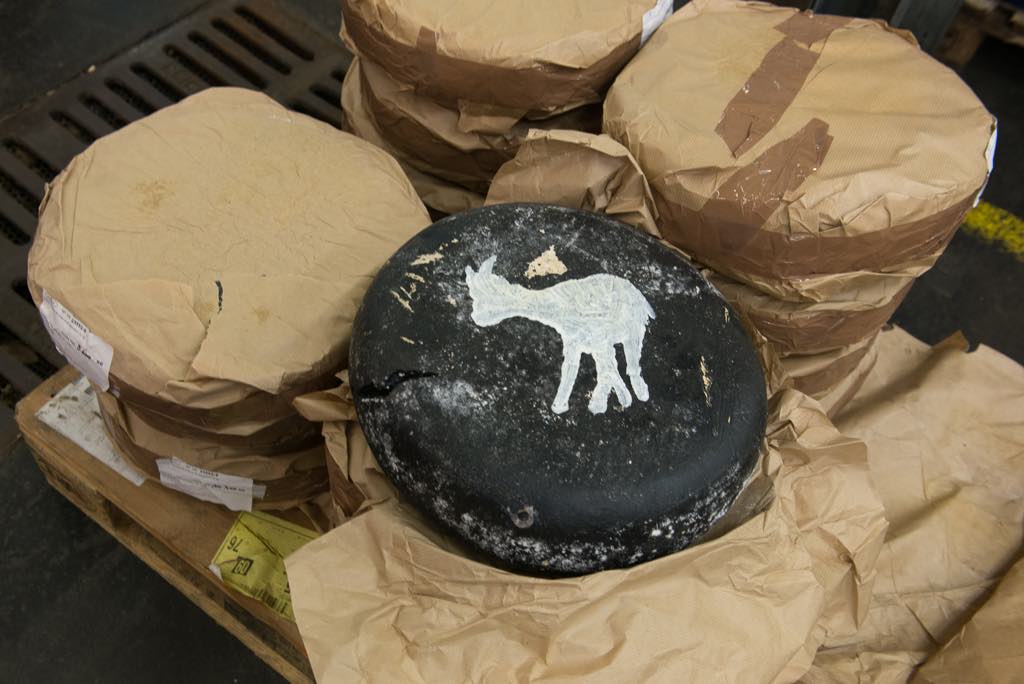
Much has changed since the advent of the coronavirus crisis, however. The massive food-wholesaling machine that is Rungis, with 1,200 vendors and yearly sales of over €10 billion, lost many of its customers when restaurants, cafés and bars in France were ordered to close on March 16, while the closure of schools and universities put an end to food orders for their cafeterias. The order handed down by the French government on Monday to close all covered and outdoor retail food markets will further change the way food is distributed, presumably in favor of large retailers like supermarket chains. Herault and other small primeurs like him will be temporarily put out of business.
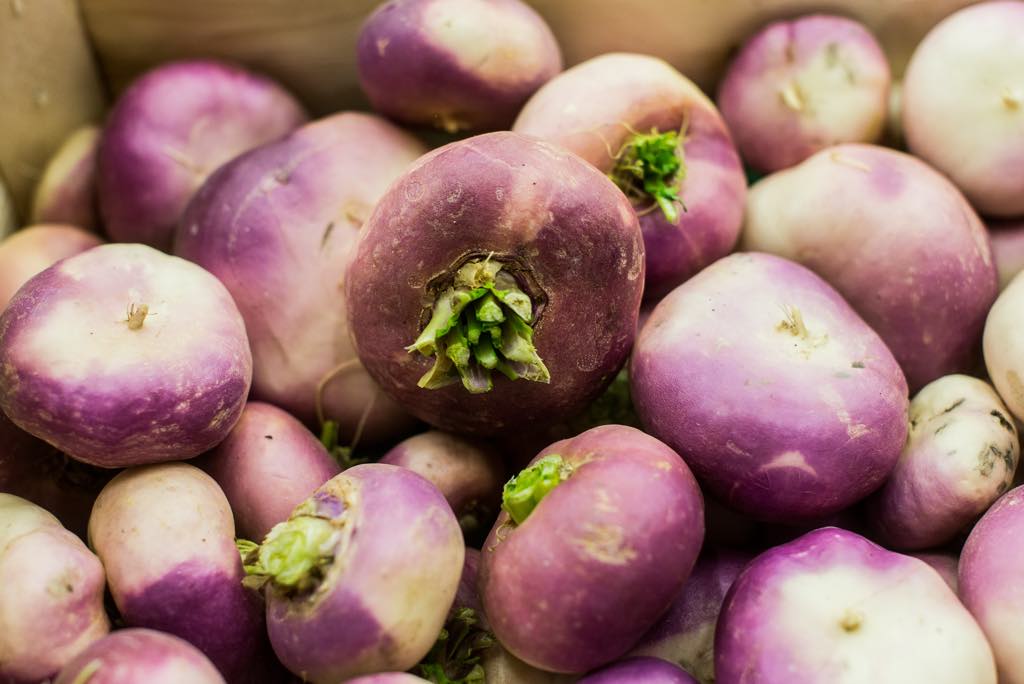
These changes have forced Rungis to reorganize and have caused price fluctuations for many products. To ensure a safe food supply, the market’s already strict hygiene standards have been strengthened, extra cleaning staff hired, and visits by outsiders temporarily prohibited. New rules have been established to avoid contact between buyers and sellers, and to impose frequent handwashing.
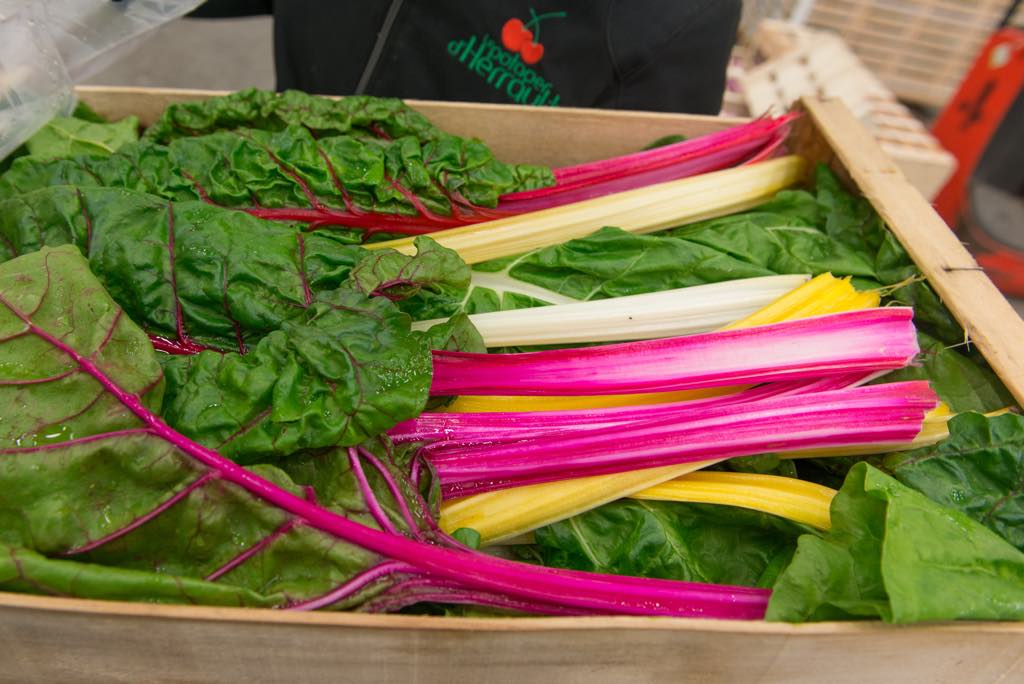
Products that are selling fast are those, like potatoes, that can be stored and are versatile. Fresh products that must be consumed quickly, like asparagus and strawberries, are suffering, and their availability is threatened by a shortage of harvesters, usually migrant workers who have been affected by restrictions on travel. Fish sales have dropped, which means lower prices and fewer fishermen taking to the sea (which may have a felicitous knock-on effect on decimated fish populations).

In a happier future, when the ravages of this virus have been halted, I highly recommend a visit to Rungis, the way station for almost all we eat in Paris, even though it means rising early in the dark. Let’s hope the food supply chain, so important to every French resident, will soon return to normal and perhaps even be improved by a strengthened focus on local and organic food.
Note to readers in the Paris area: Some scammers are posing as Rungis vendors and pretending to sell online to individuals at wholesale prices, with a minimum sale of €80. Don’t fall for it. Here is the e-mail address for a farm (with a stand at the Marché d’Aligure), La Pomme de Paris, that is offering direct delivery of fresh produce and poultry: dorian@pommegautier.
Click here for information on visiting the market.
All photos on this page © Jason Gardner
Favorite
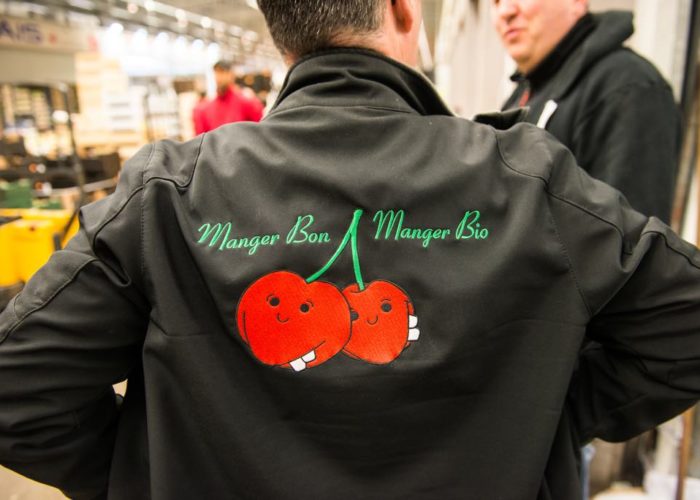
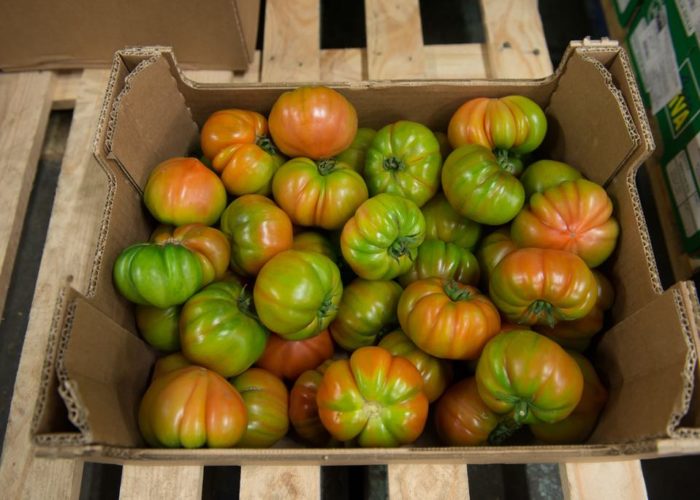
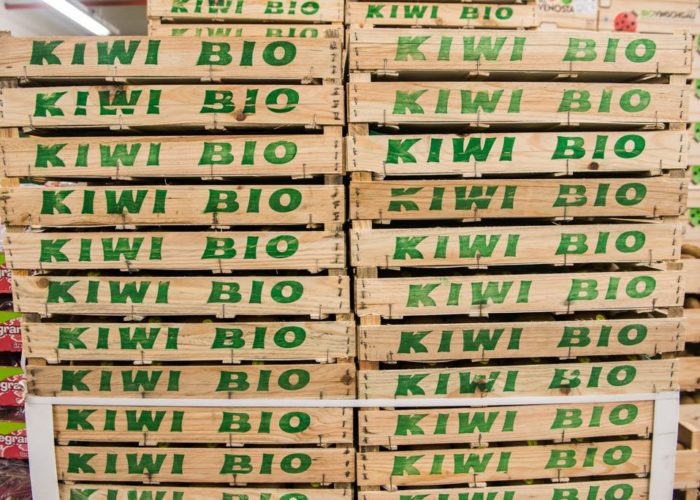
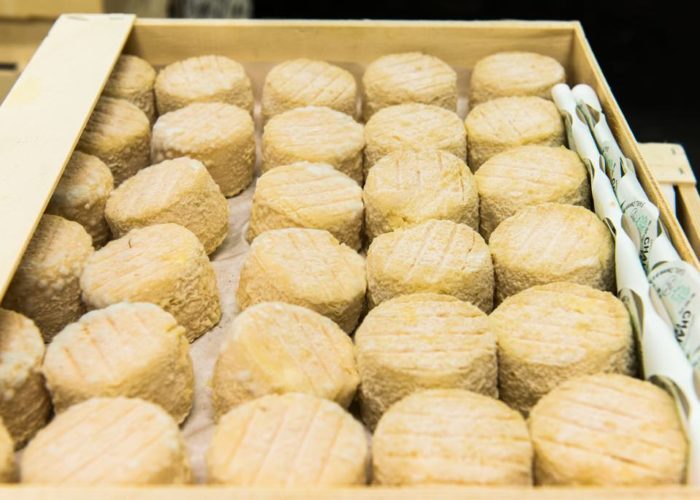
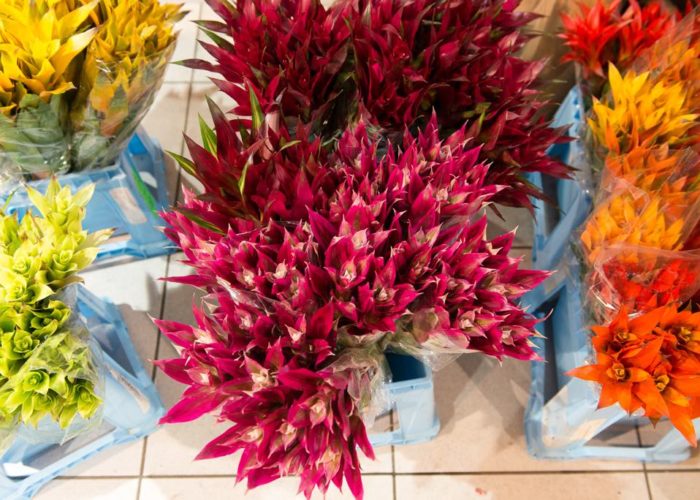
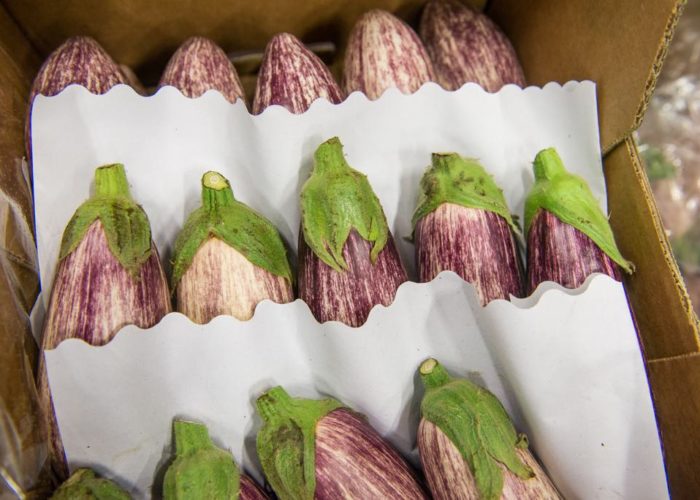
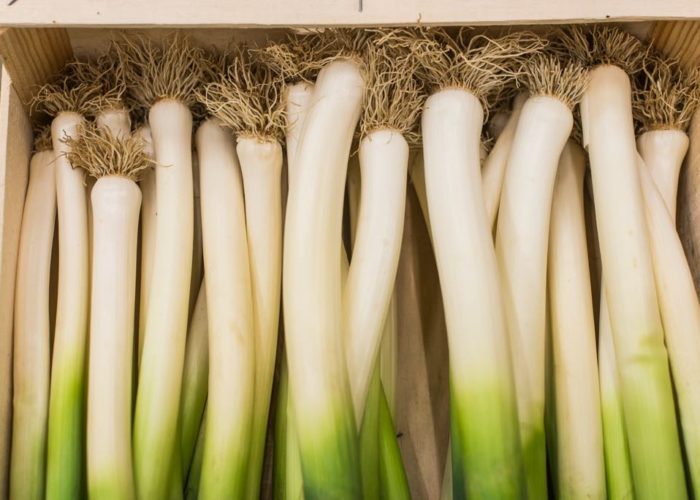
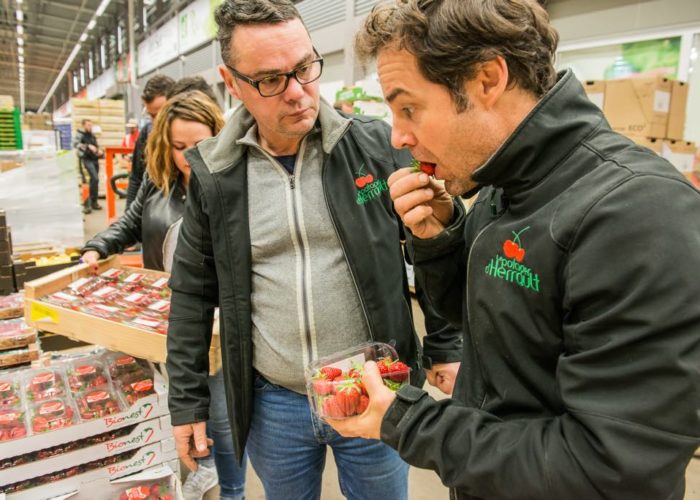
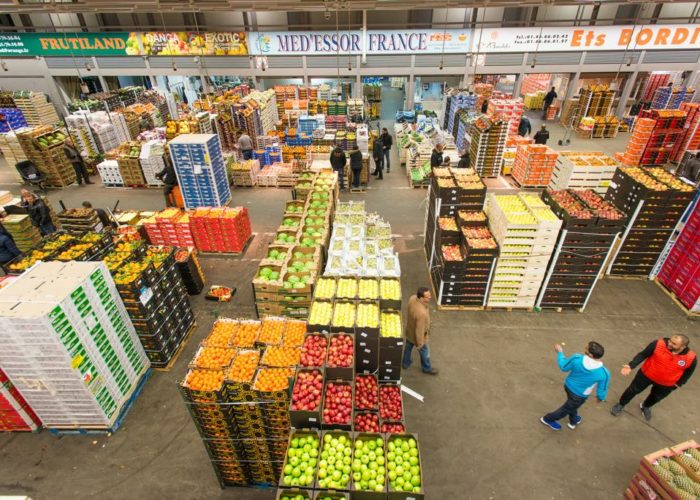
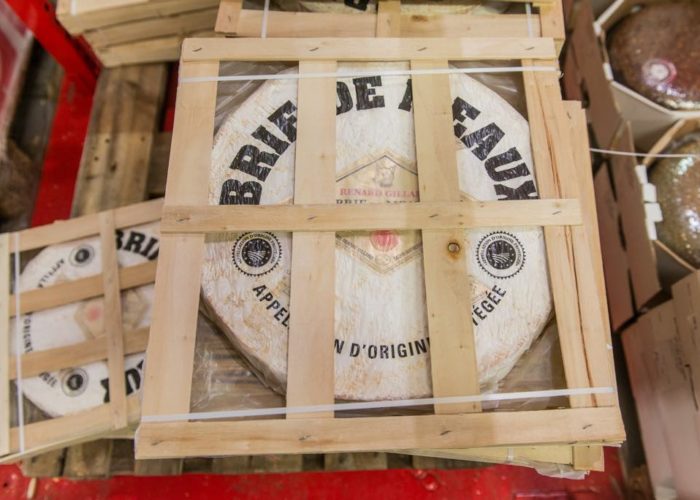
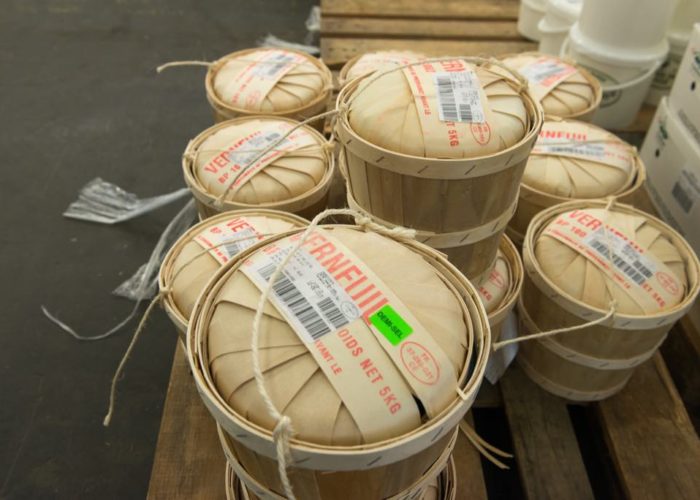
Monsieur Hérault is our affable and dependable merchant of excellent organic produce at the Marché Baudoyer in the 4th, and we shall miss him terribly during this period of “confinement”. I hope he and his confrères can weather this hiatus and that his business will survive!
Dear Heidi,
What a wonderful visit you gave us readers to Rungis. I had always wondered where the world-class food for which Paris is so rightly famous, comes from. Especially since I never got to see the famous bins and sellers of Les Halles.
I live vicariously in winter by reading your restaurant reviews, and I fervently hope this quarantine will lift by summer. Then I will look forward to trying some of the enticing restaurants you have reviewed for us.
Your devoted reader,
Martha Babcock
New York City
Fun virtual trip to the market! Well done.